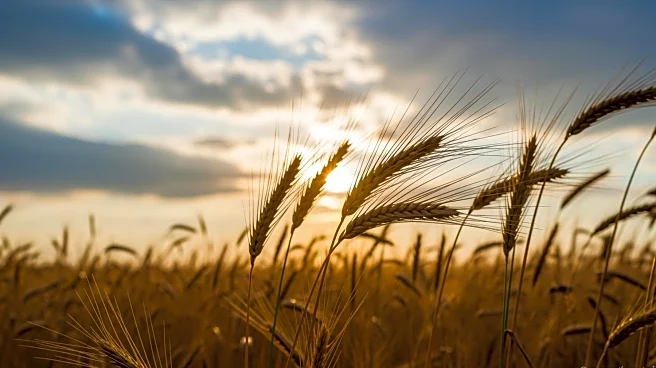What's Happening?
At the Women in Agribusiness Summit, experts discussed the 2026 weather forecast and its implications for agriculture. Bill Kirk, CEO of Weather Trends International, highlighted the importance of global
weather patterns, noting Brazil's favorable conditions could impact global prices. Kirk predicted a cold and wet spring in Brazil, leading to increased crop yields, while the U.S. Corn Belt may experience a cooler and drier spring. AI plays a crucial role in forecasting, but experts caution against relying solely on technology without human oversight. The panel emphasized the importance of accurate data for farmers to make informed decisions about planting and pest management.
Why It's Important?
Weather forecasting is vital for agricultural planning, affecting decisions on crop selection and market strategies. Accurate predictions can help farmers optimize yields and manage risks, impacting commodity prices and supply chains. The use of AI in forecasting offers speed and efficiency, but human expertise remains essential for accuracy. Understanding global weather trends, such as Brazil's crop yield, can influence U.S. market dynamics, affecting prices and economic stability. The insights provided by experts can guide agribusinesses in risk management and strategic planning, ensuring resilience against adverse weather conditions.
What's Next?
Farmers and agribusinesses will need to adapt to the predicted weather patterns for 2026, potentially altering planting schedules and crop choices. The integration of AI in forecasting will continue to evolve, offering more precise data for decision-making. As global weather patterns influence local markets, stakeholders may need to reassess their strategies to remain competitive. The focus on accurate data and human oversight in forecasting will likely increase, ensuring reliable predictions and effective risk management. Long-term planning will be crucial to navigate the anticipated weather challenges and capitalize on favorable conditions.
Beyond the Headlines
The reliance on AI for weather forecasting raises ethical considerations about data accuracy and the potential for over-dependence on technology. The intersection of global weather trends and local agricultural practices highlights the need for international collaboration in climate research. The economic implications of weather patterns extend beyond agriculture, affecting transportation, exports, and insurance industries. As climate change continues to alter weather patterns, the agricultural sector must innovate to maintain productivity and sustainability. The role of technology in forecasting underscores the importance of balancing innovation with traditional expertise.










